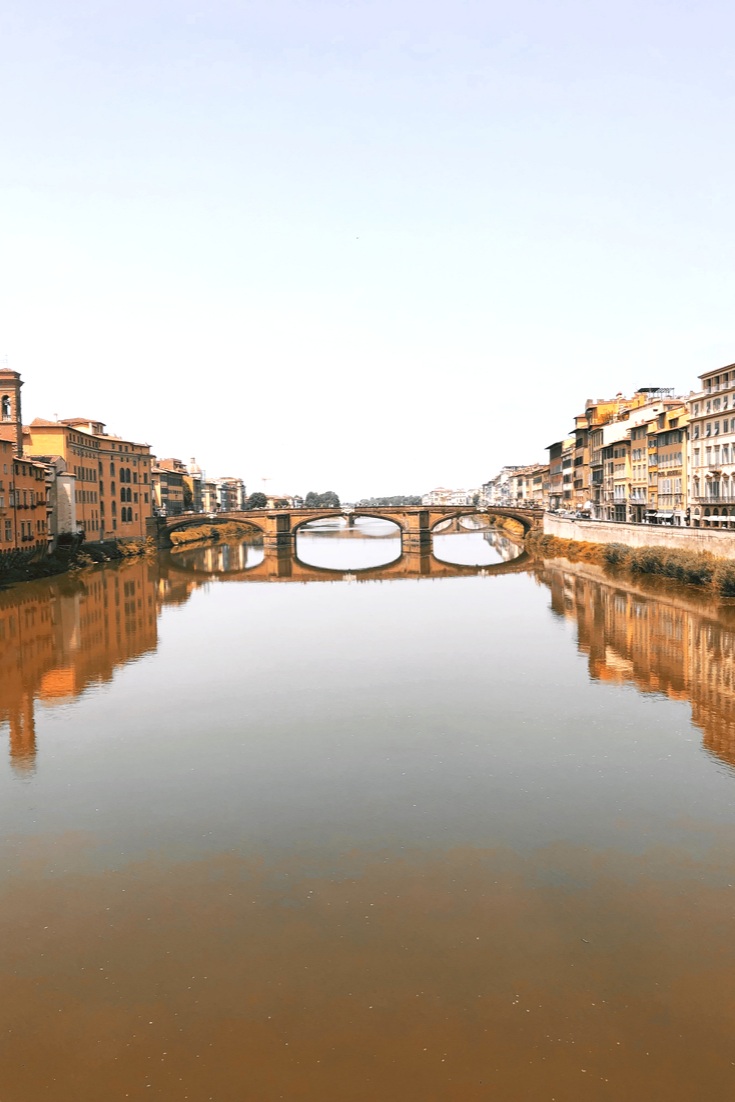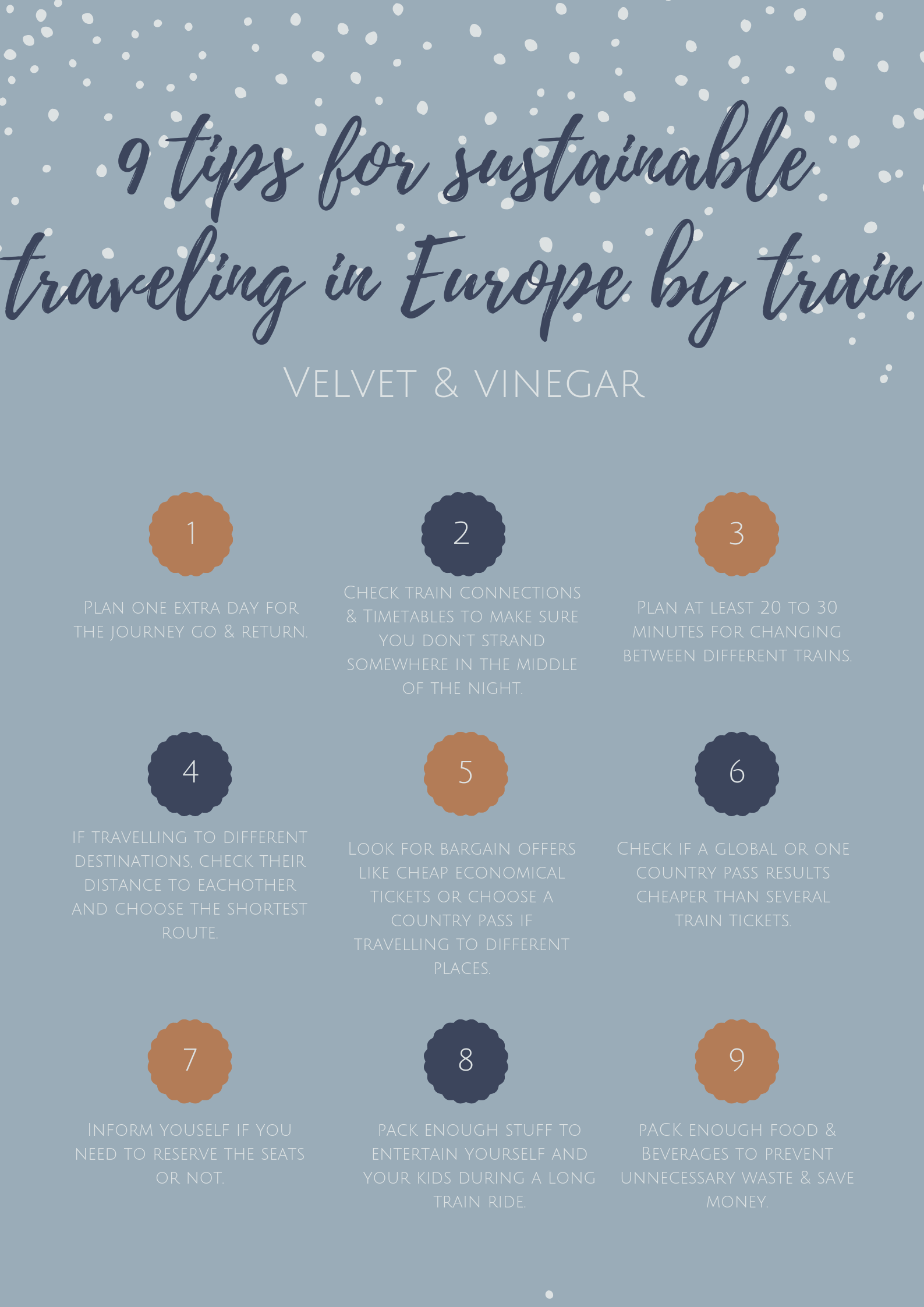This blog post also is available in German.
You love to discover new places, countries and cultures? But you don’t want to get on the plane carelessly anymore? I totally understand how you felt when you became aware of the negative consequences of flying. When suddenly you could no longer reconcile your passion for traveling with your ecological ideology (by the way is it travelling or traveling?Always wondering). Jet for a short weekend to Paris or London doesn’t feel right any more, does it? At first you surely fell into a big black hole, you were completely and utterly upset. The idea of not travelling may have tied up your chest. The comforting words of your colleagues “the country you live in has beautiful corners, too” could only cheer you up at short notice.
Does that sound familiar to you? In any case, I felt exactly the same when I noticed how ecologically fatal flying is. In the meantime, flying only is an option for us if we plan a journey outside Europe. And outside Europe we travel about every two years, or maximum once a year. If you can somehow identify yourself with the above sentences, then you have come to the right place. First of all I would like to share the good news with you; you can continue to travel, even without an airplane. The bad news; you have to plan more time for your travels. How does sustainable travel work in Europe? Well, by train!
In this article I’ll tell you how to travel seamlessly on the train.
sustainable travelling in Europe requires a new time management
Sustainable travelling in Europe by train requires rethinking. You can’t reach your destination in 1 to 2 hours anymore, depending on where you plan to go. It may take you several hours on the train back and return. We sat over 9 hours in the train to Berlin, where the flight would take only 1.5 hours. The same for our trip to Northern Italy and Vienna. For us it`s worth it, if we thereby travel more ecologically.
The first rule for sustainable travelling in Europe is therefore; you have to rethink your time management. Depending on the destination, a whole or half day’s holiday can be spent for just one way. Or you can opt for a night train. This rule also applies if you choose travelling by bus or ship. So make sure you always find out in advance how long a journey on the train will take. Like that you can include this in your holiday planning. On a city trip, for example, we almost always take a whole week off, but we are only 3-4 days in the city itself.
As a Swiss citizen, I always look up the duration of train journeys in SBB’s online timetable. Probably the railway company of your country also has such a page, where you can at least inform yourself about the duration of the train journey.
connecting trains & other connections
To put it in a nutshell, you can get practically anywhere in Europe by train. Ok, you might have to take a ferry sometimes, but the train connections in Europe are great. However, it is important to study the train journey in detail right from the start. So there is no awakening and you won`t strand in the middle of the night at a transit station. So rule number 2: before you plan your trip, check exactly what connections you have for your journey to the desired destination. This may sound banal to you, but it’s very important because it can affect Rule 1.
Here is an example;
We would like to go to Norway next year. My plan is to take the train to Oslo and rent a caravan there. Whether this will work out financially is still in the stars, but I`ve already looked at the train connections. The train journey takes about 27 hours. If one looks at the detailed timetable, one notices that one arrives somewhere in the middle of the night and the next connection does not continue until 4 or 5 o’clock in the morning. As a family with a small child, such a route is unthinkable. Therefore, we either have to find another connection or plan an intermediate stop in Hamburg. You see, this in turn affects time management. We would need 2 days for each way, because we have to stop in Hamburg.
When changing trains, also make sure that you have enough time. In addition, your previous train may be delayed. I find that everything from 20 minutes or even better 30 minutes between two trains as perfect. Everything else is a bit stressful, depending on the station and the distance between the tracks.
strategic route planning
If you are planning a round trip or a trip with several destinations, then plan your route strategically. What do I mean by that? It makes no sense to go down once on the map, then up again. You lose money and time. The 3rd rule says that if you are heading for several destinations by train, then inspect their location and distance from each other exactly. I do this mostly with Google Maps. But I`ll go into this point again in detail in a separate blog post about our trip to Northern Italy.
on bargain hunting – economy tickets & country passes
Travelling by train has another big advantage for a family compared to flying; the toddlers don’t cost anything up to a certain age. When flying, you pay for your child from the age of 2, which is not the case on the train. In addition, many railway companies also offer bargains. There are, for example, cheap economy tickets where you can travel on the train for a ridiculous price. The only condition is that you take exactly the train you booked.
For round trips or trips across several borders/countries there are also the so-called One Country or Global Passes. You can use them to travel unlimited on certain days or for a certain period of time, depending on your choice. The One Country Pass is valid for a selected country, which you choose specifically. The Global Pass is valid in all listed European countries. This may save you some money. I`ll write a little more about the advantages and disadvantages of these passes in detail in the upcoming blog post about our trip to Northern Italy. We used a One Country Pass for that very trip.
seat reservations yes or no?
A question that everyone must decide for themselves. It`s important that you find out before booking your tickets whether there is a reservation obligation in certain trains/countries. This may be different for each country and each type of train. There is no reservation obligation in Switzerland and I don’t think it`s necessary if you don’t travel during rush hours. In Germany you don’t need to make a reservation either, but I would strongly advise you to do so. On our trip to Berlin we were very happy about the reserved seats, especially as a family. The train was packed and we would have had to sit on the ground without a reservation. In Italy there is a reservation obligation for express trains.
Seat reservations are always subject to a surcharge. In the case of families, however, I would definitely recommend them. You will travel much more relaxed. If your child is still small, you don’t need to reserve a place for the child itself. Otherwise I don’t find it so dramatic when you have to stand or sit on the floor.
sustainable travelling in Europe – Let’s get started!
The route is planned, the tickets booked, the seats reserved. Your journey can finally begin! Two more important things you to consider before you board the train. Make sure you packed enough entertainment and food for long journeys.
entertainment for young and old
If you travel alone, it`s best to pack a good book or other reading material (magazines, ebooks). If you`ve booked a seat with a table, you can also work on your laptop. In some trains, such as the ICE in Germany, Wifi is free. Then you can also stream or do other activities.
If you are traveling with children, make sure you pack enough age-appropriate toys. Younger children in particular will need to be occupied and quickly get bored. We always pack a lot of books and toys so that we can entertain our two-year-old.
enough food is everything
Be sure to plan in advance what foods and drinks you want to pack. Like that you can buy all the ingredients early enough and prepare everything the day before you leave. You wonder why you should bring your own food? There are several reasons for this. First, you are much more sustainable with your own water bottles and boxes. You don’t have to buy anything that is packed in plastic or creates unnecessary waste. Second, you save money. The food on the trains themselves or at the stations is usually overpriced. Third, you know what you’re eating and there aren’t always healthy options on trains, let alone vegan ones.
I hope I was able to answer your questions about train travel in Europe and show you that sustainable travelling in Europe is absolutely no problem. You definitely don’t have to say goodbye to your passion of travelling.
Otherwise I can only recommend you to have a look around in your home country. There are certainly many wonderful places there that are suitable for a weekend trip. Such small excursions in your own home country also dampen the wanderlust a little, which may reduce the urge to travel all the time. This is just a small incentive on the side. For this winter, for example, I’ve created a bucket list of things I’d like to do.
Read you soon,
your Sarah



